Reviews
Drew Stone
USA, 2012
Credits
Review by Katherine Follett
Posted on 08 May 2012
Source Projected DVD
Categories The 2012 Independent Film Festival Boston
After a brief explosion of popularity for a few choice bands in the 1970s, punk went underground in the 1980s. Fans of rock history are probably familiar with the So-Cal scene, DC Hardcore, and a cluster of Minneapolis indie, but punk remained fringe until grunge and pop-punk (Green Day, Blink 182) in the 1990s.
It makes sense that gritty, dense, repressed Boston also had a thriving hardcore punk scene, but few people outside New England have probably heard of SS Decontrol, Freeze, Jerry’s Kids, or the F.U.s. Though it certainly shrinks the target audience for All-Ages: The Boston Hardcore Film, this anonymity also ensured that Boston hardcore remained an endeavor of, by, and for the kids. As a result, All-Ages is a documentary less about a music scene and more about what feels like a family.
Given the intimacy of the scene, it’s difficult to review this film apart from the experience of watching it in a Harvard Square theater packed with the very musicians, scene-kids, club owners, and photographers who were its subjects. The screening felt like a raucous reunion. The crowd cooed, laughed, cheered, and talked back at the people on screen. Beer bottles clattered on the floor. The balcony physically wobbled with barely repressed moshing each time a new song blistered through the soundtrack. The audience at the premier embodied a point made many times in the movie: Boston hardcore wasn’t about musicians, it was about a group of people, on stage and on the floor, who came together to create a social refuge. The documentary was a family photo album, a love letter scrawled on the back of a fist, and as sincere an expression of affection and solidarity as I’ve ever seen in a movie. If it’s at all possible to view this film in Boston, you owe it to yourself; just don’t try to shush anyone.
The film itself works to emphasize this collective spirit. Much of its running time is assembled from interviews with dozens of participants, representing a surprising diversity of race, age, gender, and education, more than any newbie could ever keep track of. The many voices create a unity as they all tell the same story: Sometime in the early 80s, a couple hundred kids in Boston and its suburbs got hold of some Black Flag and Iggy and the Stooges records. A few dozen of those kids started bands, and the rest showed up for every gig. The music was pure American adolescent anger, and the lovingly violent audience was as much a part of the show as the guys on stage. Almost everyone was still in high school. A few bands got big enough to open up for acts like the Circle Jerks, but no one got anything like a record deal. They did everything themselves, from playing to promotion to booking to distribution. After a few years, things started to peter out. Life moved on, but everyone remembered the purity of what they once had. It’s the story of almost every collective creative endeavor, but (for better or worse) without your usual rock-doc boom and bust of national popularity.
Without that fame as an audience draw, the film is sometimes in danger of preaching to the (very loud) choir. The music, culture, and personalities may not be relevant to anyone who isn’t already interested in hardcore. The film is a fast-paced assemblage of images and blasting sound that doesn’t slow down to offer much exposition or musical context. But some details transcend the niche. The photography is universally excellent; someone in the scene (who was undoubtedly interviewed and credited and in the audience that night, but I lost track) had an incredible eye for the young, hard-edged look of punk kids, clubs, and performances. The black-and-white pictures are classic and indelible images of rebellion and energy. And though individuals interviewed are emphasized less than the collective scene, many personalities are too strong to be contained—foul-mouthed, irreverent, hilarious, twitchy, deadpan, earnest, or touchingly vulnerable. And throughout the film, the care and love of everyone involved comes through loud and clear, as counter-intuitive as it seems in a scene fueled by anger and aggression. Everyone interviewed speaks about a feeling of loneliness and alienation that brought them together. It’s a feeling anyone who’s been a teenager can relate to. As one musician summed up, “A nobody could be somebody, back in them days.”
In some sense, this universality is all the more powerful because no one in the scene went on to become a celebrity, with all the individual alienation that entails. The kids in the hardcore scene became part of something larger than themselves, but no so large that they got lost. Those who might be tempted to skip All-Ages because they’re not fans of punk should know that it isn’t a film about Boston hardcore; it’s a film about creativity, youth, and friendship. And if you have any chance to see it alongside the people who lived it, you might feel like you’ve just become part of it, too.
More The 2012 Independent Film Festival Boston
-

Beauty is Embarrassing
2012 -

Gregory Crewdson: Brief Encounters
2012 -
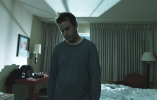
Sleepwalk with Me
2012 -

Liberal Arts
2010 -

Burn
2012 -
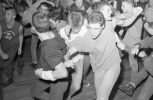
All-Ages: The Boston Hardcore Film
2012 -
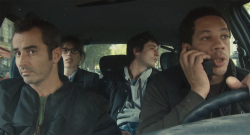
Polisse
2011 -
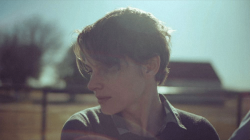
Sun Don’t Shine
2012 -

Headhunters
2011 -

Cerro Rico, Tierra Rica
2011 -
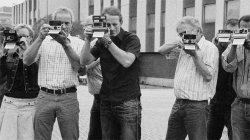
Time Zero: The Last Year of Polaroid Film
2011 -

Jason Becker: Not Dead Yet
2012 -
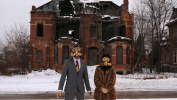
Detropia
2012 -

Girl Model
2011 -
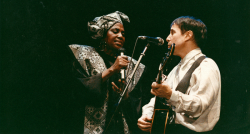
Under African Skies
2012 -

The Central Park Effect
2012 -
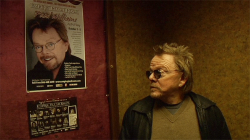
Paul Williams: Still Alive
2011 -

Trishna
2012 -

The Queen of Versailles
2012
We don’t do comments anymore, but you may contact us here or find us on Twitter or Facebook.



